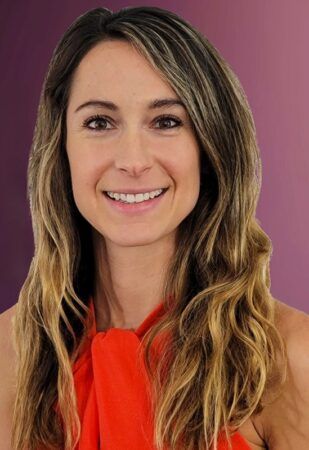Home News & Views RBCS for Speech Pathologists
RBCS for Speech Pathologists

Hannah Caron, SLPD, MS, CCC
Doctor of Speech Pathology
Concerns about burnout in healthcare are at an all-time high, particularly for one group of healthcare workers: medical speech-language pathologists (SLPs)1. These professionals provide services to patients who have lost the ability to communicate or have lost the ability to eat and drink safely.
I think it’s fair to say that the ability to talk and eat are essential functions that make us feel human and bring us much joy in life. Working with these patients can be emotionally taxing. Medical SLPs must manage these heavy emotions somehow, so they try to ignore these negative feelings to maintain professional composure. As a medical SLP, I know how this feels. When we do this repeatedly, it eventually backfires. Chronic emotional suppression is an essential ingredient in the recipe for burnout.
Studies have shown up to 97.3% of SLPs experience burnout2! I needed to find a solution. There had to be a way to support medical SLPs and help them cope with the high levels of stress they face at work.
I learned about Resilience-based Clinical Supervision (RBCS) during my doctoral studies. I was intrigued by this unique supervision programme and how it addresses healthcare workers’ occupational stress, helping them develop resilience and practise healthy coping strategies. I read studies that showed the benefits of RBCS in supporting nurses and student nurses in coping with workplace stress3. I wanted to see if we could generalise the findings to a different group of healthcare workers.
After completing the RBCS facilitator training programme with the Foundation of Nursing Studies4, I conducted a research study; I implemented RBCS with burned-out medical SLPs. As I began facilitating the programme, I quickly realised that these burned-out workers previously had no one to talk to about their work stressors. I listened to their stories and could relate to every single one. I have been lucky to be a part of a small team of SLPs at every hospital I’ve worked at. However, many of my research participants were the only SLPs at their facility. One told me it was comforting to know others share similar experiences. Then, I realised that nonjudgmental listening is one of the most therapeutic things about RBCS. This programme supports healthcare workers by offering them a safe space for emotional ventilation. Sometimes, people just need to feel heard or seen in order to begin processing their emotions and coping.
Every participant in the study experienced lower levels of burnout after completing RBCS, and over 80% experienced statistically significant reductions in burnout5. These encouraging results provide an impetus for an overdue evidence-based solution to medical SLP burnout.
References
5Caron, H., Heape, A., & Williams, K. (2024) The Effects of Virtual Resilience-Based Clinical Supervision on Burnout in Medical Speech-Language Pathologists. Perspectives of the ASHA Special Interest Groups, 9(4), 1245-1264. https://doi.org/doi:10.1044/2024_PERSP-23-00281
4Clinical supervision. Foundation of Nursing Studies. (2024, July 8) https://www.fons.org/programmes-development-opportunities/clinical-supervision/
2Kasbi, F., Kaviani, S., Mokhlessin, M., Monshizadeh, L., Noruzi, R. & Sadat Kai, N.
(2018) Job burnout among Iranian speech and language pathologists. Middle East Journal of Rehabilitation and Health, 5(3). https://doi.org/10.5812/mejrh.64374
3Stacey, G., Cook, G., Aubeeluck, A., Stranks, B., Long, L., Krepa, M., & Lucre, K.
(2020) The implementation of resilience based clinical supervision to support transition to practice in newly qualified healthcare professionals. Nurse Education Today, 94, 104564. https://doi.org/10.1016/j.nedt.2020.104564
1Tatham, A., Clough, B., & Maxwell, V. (1989) Stress in speech therapy. Stress
Medicine, 5(4), 259-264. https://doi.org/10.1002/smi.2460050409
Comments are closed.

